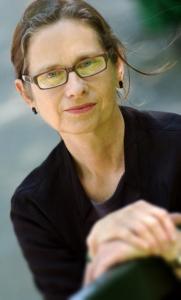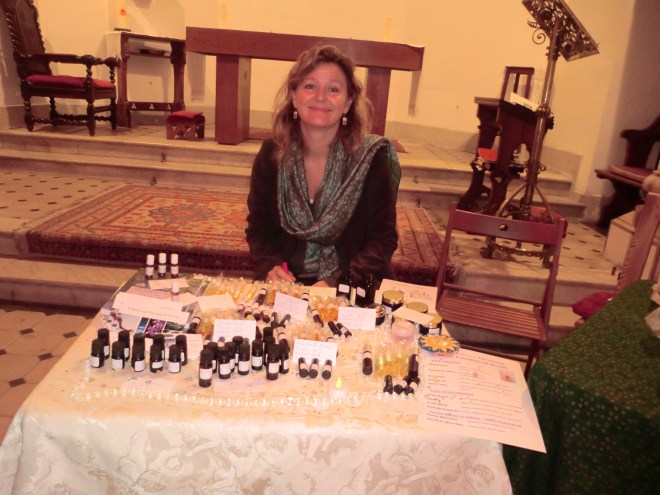 Today the longlist of the newly formed Man Booker International (MBI) 2016 was announced. In the past, this award was made every two years to an author for a body of work, so usually an author who has written numerous novels and is recognised as having made a significant literary contribution.
Today the longlist of the newly formed Man Booker International (MBI) 2016 was announced. In the past, this award was made every two years to an author for a body of work, so usually an author who has written numerous novels and is recognised as having made a significant literary contribution.
That changed after 2015, which was the last year under the old rules, I remember last year, from the longlist of 10 authors you can see here, I decided to read some of the works of the Guadeloupean author Maryse Condè.
She didn’t win the prize, but she was the right choice for me. I read her childhood essays Tales From The Heart, True Stories From My Childhood , the novel Victoire: My Mother’s Mother and the masterpiece she is most well-known for Segu.

Maryse Condé

In addition to the MBI, there was another prize called the Independent Foreign Fiction Prize (IFFP) which rewarded one novel, a recent publication, that had been translated into English in the previous year.
In 2016, these two prizes have joined together, to become one, retaining the rules of the IFFP Prize and the name of the Man Booker International Prize. The £50,000 prize is shared equally between the author and the translator.
Boyd Tonkin, chair of the 2016 Man Booker International Prize judging panel, said:
‘For the first longlist in its new form, the Man Booker International Prize invites readers to share a thrilling journey of discovery across the finest fiction in translation.
The 13 books that the judges have chosen not only feature superb writing from Brazil to Indonesia, from Finland to South Korea, from Angola to Italy. Our selection highlights the sheer diversity of great fiction today.
From intense episodes of passion to miniature historical epics; from eerie fables of family strife to character-driven chronicles of urban life, this list showcases fiction that crosses every border. It also pays tribute to the skill and dedication of the first-rate translators who convey it to English-language readers.’
Thirteen books have been announced on the longlist:
José Eduardo Agualusa (Angola) Daniel Hahn, A General Theory of Oblivion – On the eve of Angolan independence an agoraphobic woman bricks herself into her apartment for 30 years, living off vegetables and the pigeons she lures in with diamonds, burning her furniture and books to stay alive, writing her story on the apartment’s walls.
Elena Ferrante (Italy) Ann Goldstein, The Story of the Lost Child – book four in the Neapolitan saga of two friends, Lena and Lila, now adults, returning to their childhood town, dealing with life as mother’s, lovers, surviving an earthquake, tragedies of nature and humanity.
Han Kang (South Korea) Deborah Smith, The Vegetarian – Yeong-hye, seeking a more ‘plant-like’ existence, decides to become a vegetarian, prompted by grotesque recurring nightmares. In South Korea, where vegetarianism is almost unheard-of and societal mores are strictly obeyed, Yeong-hye’s decision is a shocking act of subversion.
Maylis de Kerangal (France) Jessica Moore, Mend the Living – takes place over twenty-four hours surrounding a fatal accident and a resulting heart transplant as life is taken from a young man and given to a woman close to death, examining the deepest feelings of everyone involved.
Eka Kurniawan (Indonesia) Labodalih Sembiring, Man Tiger – A slim, wry story set in an unnamed town near the Indian Ocean, Man Tiger tells the story of two interlinked and tormented families, and of Margio, an ordinary half-city, half-rural youngster who also happens to be half-man, half-supernatural female white tiger.
Yan Lianke (China) Carlos Rojas, The Four Books – In the ninety-ninth district of a sprawling labour camp, the Author, Musician, Scholar, Theologian and Technician are undergoing Re-education, to restore their revolutionary zeal and credentials. In charge of this process is the Child, who delights in draconian rules, monitoring behaviour and confiscating treasured books.
Divided into four narratives, echoing the four texts of Confucianism and the four Gospels of the New Testament, The Four Books tells the story of one of China’s most controversial periods, demonstrating the power of camaraderie, love and faith against oppression and the darkest possible odds.
Fiston Mwanza Mujila (Democratic Republic of Congo/Austria) Roland Glasser, Tram 83 – In a war-torn African city-state tourists converge with students, ex-pats and locals. Their one desire: to make a fortune by exploiting the wealth of the country, both mineral and human. As night falls, they go out to drink, dance, eat and abandon themselves in Tram 83, the only night-club of the city, a den of all iniquities. An African-rhapsody novel infused with the rhythms of jazz.
Raduan Nassar (Brazil) Stefan Tobler, A Cup of Rage – A pair of lovers – a young female journalist and an older man who owns an isolated farm in the Brazilian outback – spend the night together. The next day they proceed to destroy each other. Erotic cult novel by one of Brazil’s most infamous modernist writers explores alienation, the desire to dominate and the wish to be dominated.
Marie NDiaye (France) Jordan Stump, Ladivine – a psychological tale of a trauma that ensnares three generations of women, via a woman captive to a secret shame. Once a month, Clarisse Rivière leaves her family and secretly takes the train to visit her mother, Ladivine. Just as Clarisse’s husband and daughter know nothing of Ladivine, Clarisse has hidden nearly every aspect of her adult life from this woman, whom she dreads, despises but also pities.
Kenzaburō Ōe (Japan) Deborah Boliner Boem, Death by Water – his recurring protagonist and literary alter-ego returns to his hometown village in search of a red suitcase fabled to hold documents revealing the details of his father’s death during WWII: details that will serve as the foundation for his new, and final, novel.
Aki Ollikainen (Finland) Emily Jeremiah & Fleur Jeremiah, White Hunger – 1867: a year of devastating famine in Finland. Marja, a farmer’s wife from the north, sets off on foot through the snow with her two young children. Their goal: St Petersburg, where people say there is bread. Others are also heading south, just as desperate to survive.
Orhan Pamuk (Turkey) Ekin Oklap, A Strangeness in My Mind – the story of Mevlut, the woman to whom he wrote three years’ worth of love letters, and their life in Istanbul. Mevlut Karataş sells boza (a traditional mildly alcoholic Turkish drink) in Istanbul and wishes for love and riches. He doesn’t have the best of luck (falling in love with a woman and accidentally eloping with the sister) as he ages, attempts to discover what is missing from his life.
Robert Seethaler (Austria) Charlotte Collins, A Whole Life – Andreas lives his whole life in the Austrian Alps, arriving as a boy taken in by a farming family. A man of few words, when he falls in love with Marie, he has friends light her name at dusk across the mountain. When she dies in an avalanche, pregnant with their first child, Andreas’ heart is broken. He leaves the valley just once more, in WWII – and is taken prisoner in the Caucasus – returning to find modernity has reached his remote haven.
*****
A fabulous lineup of books and authors across countries and languages. I have read two of the books, Elena Ferrante’s The Story of the Lost Child and Aki Ollikainen’s White Hunger, both of which are excellent, and although I haven’t read The Vegetarian, I have read Han Kang’s more recent novel Human Acts which was brilliant!
I’d love to read Marie NDiaye, Orhan Pamuk, Kenzaburō Ōe, Robert Seethaler, Yan Lianke, they all sound fantastic. And Man Tiger sounds interesting, and I definitely want to read more of Han Kang!
A shortlist of six books will be announced on 14 April.
So many great reads, which of these sounds the most appealing to you? Have you read any already?
Further Reading
The Guardian Article: Man Booker International 2016 longlist includes banned and pseudonymous authors
Purchase A Book:
If you wish to buy one of the above books, you can do so via the Book Depository link below, with whom I have an affiliation.





 So we now know a little of her motivation, however now comes the struggle, as she must balance writing with the cost of living; her circumstances have changed and we are going to learn how she manages as a single, independent mother.
So we now know a little of her motivation, however now comes the struggle, as she must balance writing with the cost of living; her circumstances have changed and we are going to learn how she manages as a single, independent mother.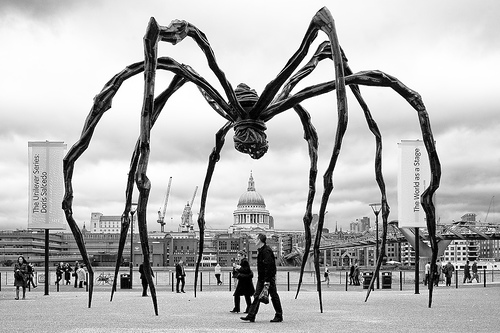
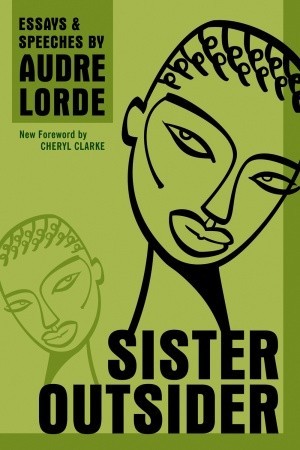 A voice repeated in my mind, ‘the master’s tools, the master’s house’ – you know when you recall a fragment of a quote but can’t quite remember it. It was the passionate sage wisdom of Audre Lorde reminding me of her essay, The Master’s Tools Will Never Dismantle the Master’s House in
A voice repeated in my mind, ‘the master’s tools, the master’s house’ – you know when you recall a fragment of a quote but can’t quite remember it. It was the passionate sage wisdom of Audre Lorde reminding me of her essay, The Master’s Tools Will Never Dismantle the Master’s House in 
 A thirty year old woman named Casey rents a tiny room and is soon to be evicted, she’s under a mountain of student debt, prone to crying, having lost her mother quite suddenly, is estranged from her father who tried to turn her into a golf pro as a youngster, an activity she now refuses to have anything to do with.
A thirty year old woman named Casey rents a tiny room and is soon to be evicted, she’s under a mountain of student debt, prone to crying, having lost her mother quite suddenly, is estranged from her father who tried to turn her into a golf pro as a youngster, an activity she now refuses to have anything to do with. And some thought provoking words about writing and fear:
And some thought provoking words about writing and fear: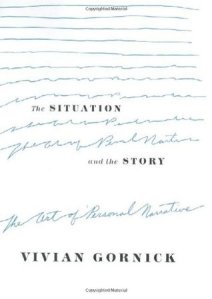 The Art of Personal Narrative
The Art of Personal Narrative We are in the presence, in each instance, of a mind puzzling its way out of its own shadows – moving from unearned certainty to thoughtful reconsideration to clarified self-knowledge. The act of clarifying on the page is an intimate part of the metaphor.
We are in the presence, in each instance, of a mind puzzling its way out of its own shadows – moving from unearned certainty to thoughtful reconsideration to clarified self-knowledge. The act of clarifying on the page is an intimate part of the metaphor.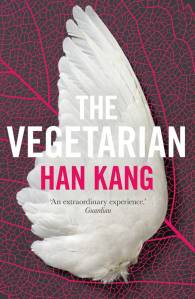
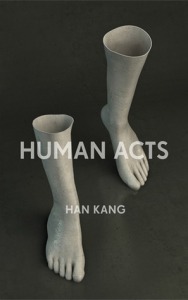
 Today the longlist of the newly formed Man Booker International (MBI) 2016 was announced. In the past, this award was made every two years to an author for a body of work, so usually an author who has written numerous novels and is recognised as having made a significant literary contribution.
Today the longlist of the newly formed Man Booker International (MBI) 2016 was announced. In the past, this award was made every two years to an author for a body of work, so usually an author who has written numerous novels and is recognised as having made a significant literary contribution.





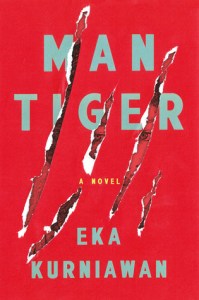

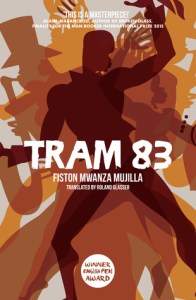



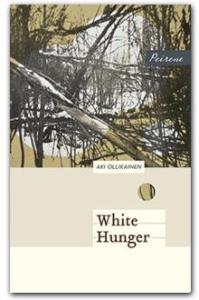
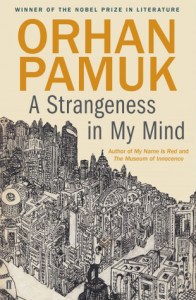

 Elizabeth Gilbert, author of the best seller Eat Pray Love and more recently in 2013, the historical, botanical novel
Elizabeth Gilbert, author of the best seller Eat Pray Love and more recently in 2013, the historical, botanical novel 

 Ford went on: “I say this to you only because writing is clearly bringing you no pleasure. It is only bringing you pain. Our time on earth is short and should be enjoyed. You should leave this dream behind and go find something else to do with your life. Travel, take up new hobbies, spend time with your family and friends, relax. But don’t write anymore, because it’s obviously killing you.”
Ford went on: “I say this to you only because writing is clearly bringing you no pleasure. It is only bringing you pain. Our time on earth is short and should be enjoyed. You should leave this dream behind and go find something else to do with your life. Travel, take up new hobbies, spend time with your family and friends, relax. But don’t write anymore, because it’s obviously killing you.” Gilbert gave her a brief outline and asked Patchett what her novel was about and she repeated almost word for word the same idea – fitting into her theory that the idea had visited her and because she had put it aside for a couple of years, it left and had been passed on to Patchett to become
Gilbert gave her a brief outline and asked Patchett what her novel was about and she repeated almost word for word the same idea – fitting into her theory that the idea had visited her and because she had put it aside for a couple of years, it left and had been passed on to Patchett to become 